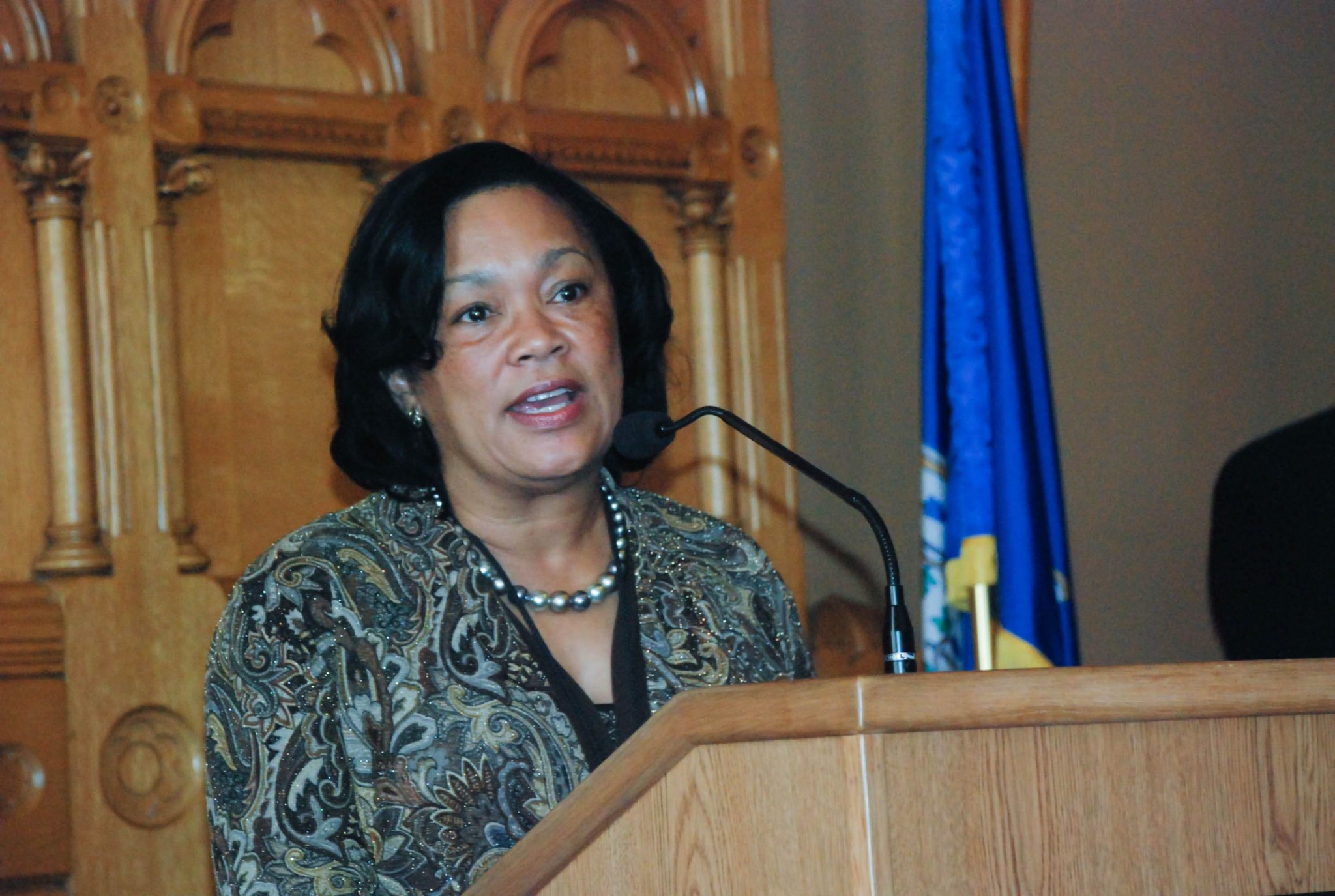
Courtesy of CT Senate Democrats
With Mayor Toni Harp’s proposed budget for the upcoming fiscal year due in just a few weeks, the cash-strapped Elm City continues to plug structural holes in its spending line by line.
On Monday evening, the Board of Alder’s Finance Committee unanimously voted to transfer funds allocated for other purposes to the budgets of the Police and Fire Departments in the current fiscal year. Both Departments have long struggled with keeping staffing at the necessary capacity, and have racked up overtime costs far exceeding their budgeted allotment for years. In a hearing that lasted several hours, committee members ultimately approved the transfer, sending it up to the full Board for a vote. Still, members raised questions on how the city can combat the systemic roots of the overspending in the future, given the Elm City’s financially dire circumstances.
“These line item transfers are actually very common during the course of a budget year,” mayoral spokesperson Laurence Grotheer told the News. “In both the police and fire departments, there are staffing issues that put an additional strain on the overtime budgets, and they needed some relief.”
In Monday’s meeting, the chiefs of the Fire and Police Departments presented their respective requests for excess funding and took questions from committee members, who expressed frustrations and concerns over structural issues.
In a slideshow presentation, Fire Chief John Alston Jr. claimed that the overall expenditures on traditionally costly areas for the Department are diminishing, despite the overtime costs hovering well beyond their budgeted allotment.
Alston showed that, in the last five years, sources of high expenditures have consistently trended down. Injury costs — which keep officers on payroll but leave vacancies that create staffing shortages — sick leave and overall dollars spent on overtime have decreased steadily over the last half decade.
Alders raised concerns that Alston’s presentation was misleading — emphasizing that the Police and Fire Departments’ over-budget overtime spending has been a consistent point of pain as the city allocates its sparse funding. Downwards trends, the Alders said, are helpful but do not eliminate fundamental issues.
“We’re broke,” Ward 10 Alder Anna Festa told Alston, his deputy and New Haven’s acting Chief Administrative Officer Sean Matteson. While sources of overspending might be trending down, “that trend has to stop,” Festa said. “We in the city cannot afford … [re-allocating funding for budget exceeding costs] every year.”
The city has continued to grapple with how to keep overtime costs down. Last year, Harp nominated Matteson to officially take over the position of CAO after the departure of Michael Carter in August 2018. But his nomination was voted down in a contentious October 2018 vote by the Board of Alders — the first time the legislative body used its ability to deny a mayoral nominee to a city appointment. Alders cited hesitation over whether Matteson was capable of reining in overtime costs in a city that badly needs fiscal austerity.
Last summer, in order to ward off bankruptcy and free up cash flows, the Harp administration took on New Haven’s largest debt restructuring ever. Pushing payments well into the next decade, it refinanced $160 million, and took on an additional $58 million.
Vacancies continue to be key drivers of costs in both the Fire and Police Departments — unfilled budgeted positions necessitate overtime. The upcoming graduation of new trainees in the city’s academy will alleviate some of the staffing pressures. The Fire Department, which requires 72 staffers, is currently short 34 while the Police Department has filled just 395 of its 495 budgeted positions.
Alston claimed that he cannot put more trainees into the fire academy than the number of vacancies the Department already has, due to pending, unspecified litigation. Furthermore, the Department cannot proactively account for anticipated vacancies. They can only hire new trainees when current members retire. And so, in terms of staffing, the Department will “get close enough” to fully staffed, but “we will never catch up,” Alston said.
However, the meeting did not provide any long-term solutions on how to solve the issue of persistently over-budget overtime costs. In an interview with the News, Grotheer confirmed that the mayor’s staff is in the process of negotiating contracts with both the Fire and Police Department unions for the upcoming fiscal year to decrease expenditures.
Ultimately, the transfers were viewed by the committee members as necessary but frustrating in a time of financial stress. Ward 5 Alder Dave Reyes asked that, in order to prevent further requests in the future, that “everything [be put] on the table”, noting that, as New Haven’s debt continues to rise, “it’s time to tighten our belt”.
The Board of Education — which has a separate budget from other city operations — is also projected to run $30 million over its allotted budget this fiscal year.
The Police Department was originally allocated $4.4 million for overtime costs. Its actual cost is projected to be around $8 million by the end of the fiscal year, on June 30. The Fire Department was given $2.17 million for overtime — its projected cost is $3.2 million.
Harp is required to submit her proposed budget for the upcoming fiscal year by March 1.
Angela Xiao | angela.xiao@yale.edu







